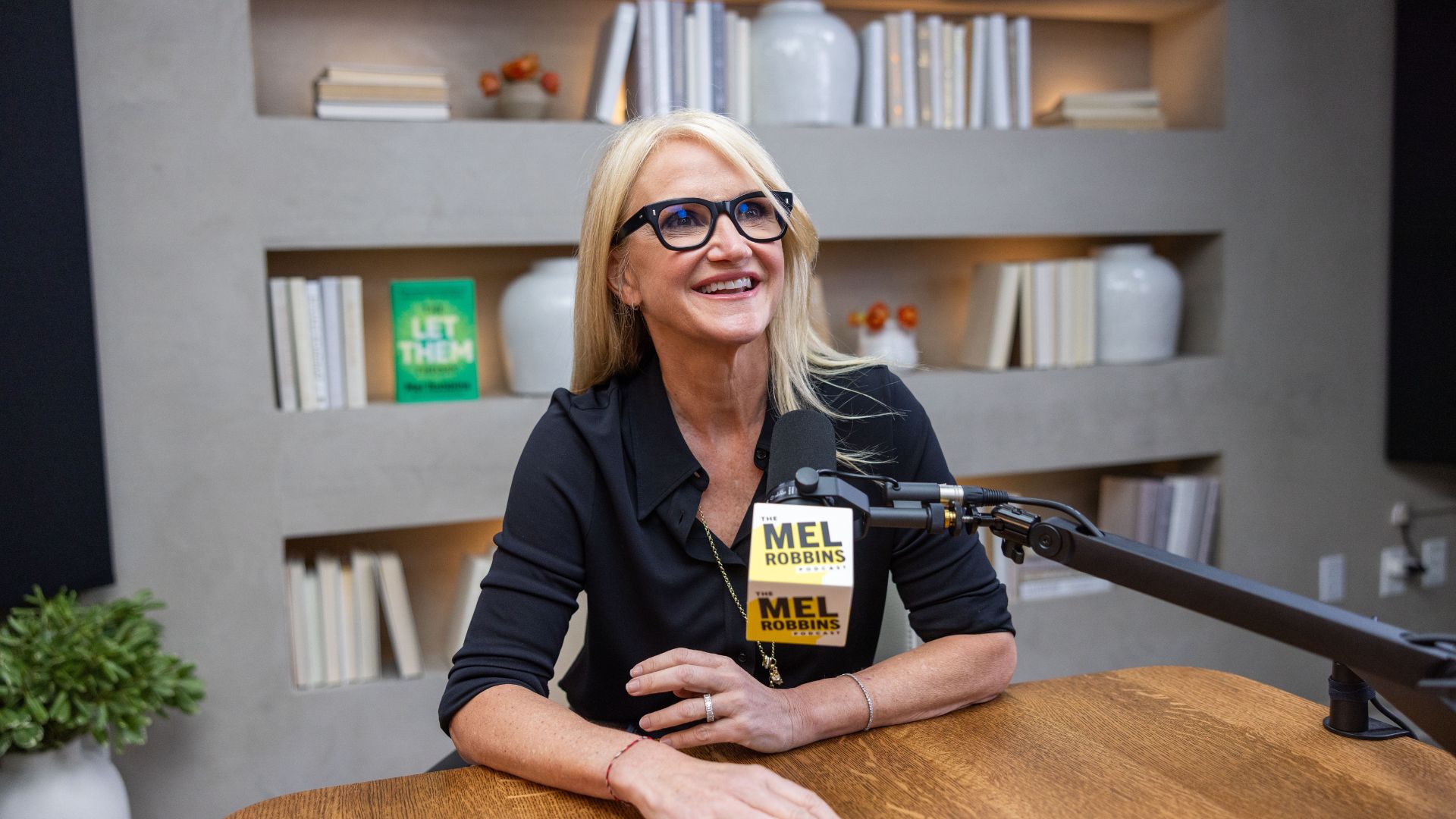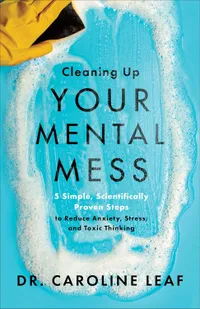Mel Robbins discusses 5-step formula to 'reduce anxiety' - and the results are remarkable
The simple formula works to 'rework and rewire' your thoughts


If you're a fan of Mel Robbins’ Let Them theory, or her seven 'tiny habits' to make your life better, you might want to try out the 'neurocycle' method she discussed recently on her podcast.
Speaking to cognitive neuroscientist Dr Caroline Leaf, Mel was hugely impressed by the documented results of the five-step 'formula' that helps to train your brain into thinking more positively and helps to reduce stress, anxiety and depression.
Mel explained the 'neurocycle' method aims to 'rework and rewire your thoughts'. And was keen to highlight it takes just 21 days to improve your mindset, as proven in clinical trials. And by a significant amount too – participants in the trial experienced a remarkable '81% reduction in depression and anxiety''.
So what is this magical neurocycle method? There are five steps, Dr Leaf explains...
1. Gather awareness
To gather awareness and 'stand back and observe' how you're reacting to something in the moment, Dr Leaf says there are 'four sentences you ask yourself':
- What am I feeling?
- Where am I feeling this in my body?
- What are my behaviours?
- What's my perspective at the moment?
2. Reflect
Once you've answered those questions, you want to reflect on your responses to them, ideally as you're looking at your own reflection in the mirror.
Ask yourself, "Why am I feeling this way and what does it mean?"
Sign up to our free daily email for the latest royal and entertainment news, interesting opinion, expert advice on styling and beauty trends, and no-nonsense guides to the health and wellness questions you want answered.
3. Write/mind storm
Dr Leaf explains how to do the third step, saying: 'Get a blank piece of paper, draw a circle in the middle, and this is what I call a Meta Cog. All you're going to do now is write what you think."
All the words and phrases that pop into your head after reflecting on your emotions, behaviours and perspectives - just write them down.
You want to 'get specific' to your situation and focus on the exact situation that's worrying you now. Forget about yesterday's problem and only write a 'free flow of thoughts' about the thing stressing you out the most right in this moment.
In her book, Dr Caroline Leaf breaks down the research, trials and science behind her neurocycle method, as well as detailing the five simple steps the method uses to reduce anxiety, stress, and toxic thinking.
4. Re-check
Step four is about looking at the problem from 'another angle' and that's the angle of solution. Dr Leaf says to ask: "What can we do about it now? How do I get through today?"
Think of a solution; it can be small! Maybe on day one you realise what the problem is and the solution is simply to come to terms with the fact there is a problem. Then you can head into step five.
5. Active Reach
Once you've realised the issue, 'actively reach for something that can get you through the day'. And do this day after day.
It's a '63-day process' to turn this reaching for positivity into your mind's natural state, Dr Leaf says. "It's like watering a plant," she adds. "If you don't keep adding water, it's going to die."
Over time, she promises, you'll likely see a massive reduction in your anxious feelings, just as participants in the clinical trial for the neurocycle method did.

Charlie Elizabeth Culverhouse is a freelance royal news, entertainment and fashion writer. She began her journalism career after graduating from Nottingham Trent University with an MA in Magazine Journalism, receiving an NCTJ diploma, and earning a First Class BA (Hons) in Journalism at the British and Irish Modern Music Institute. She has also worked with Good To, BBC Good Food, The Independent, The Big Issue and The Metro.
You must confirm your public display name before commenting
Please logout and then login again, you will then be prompted to enter your display name.
